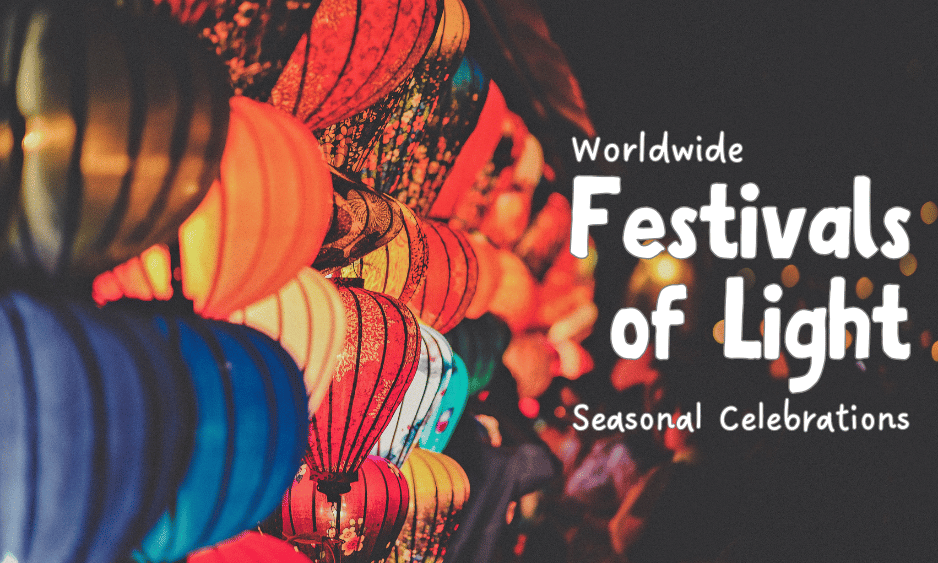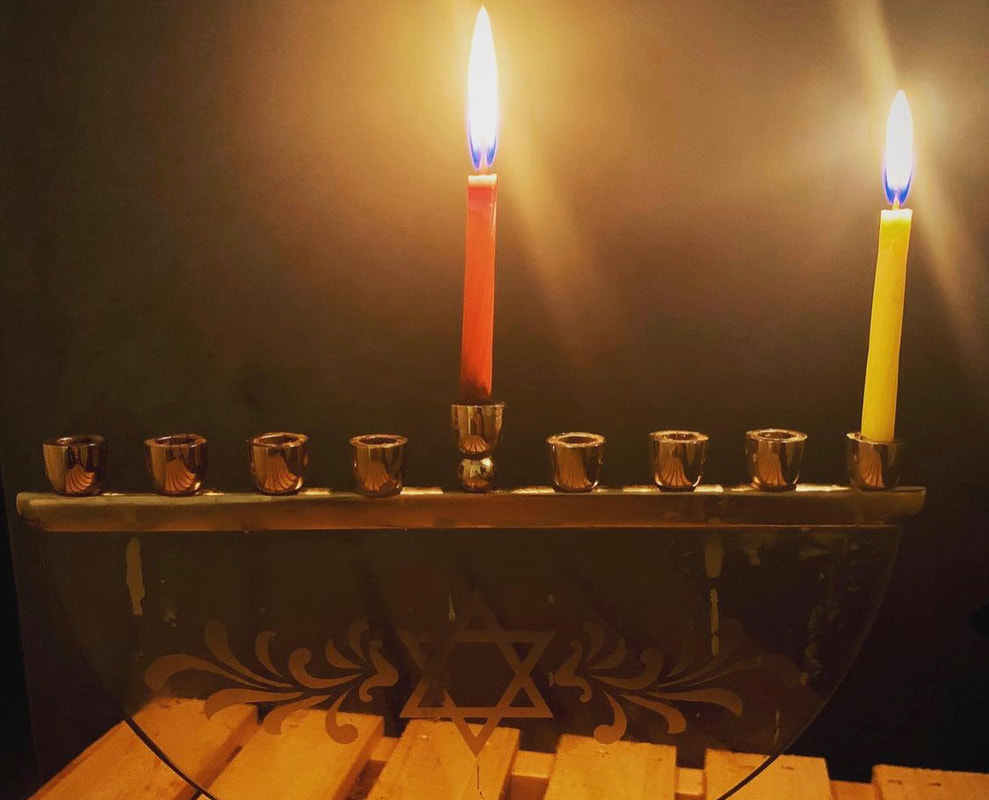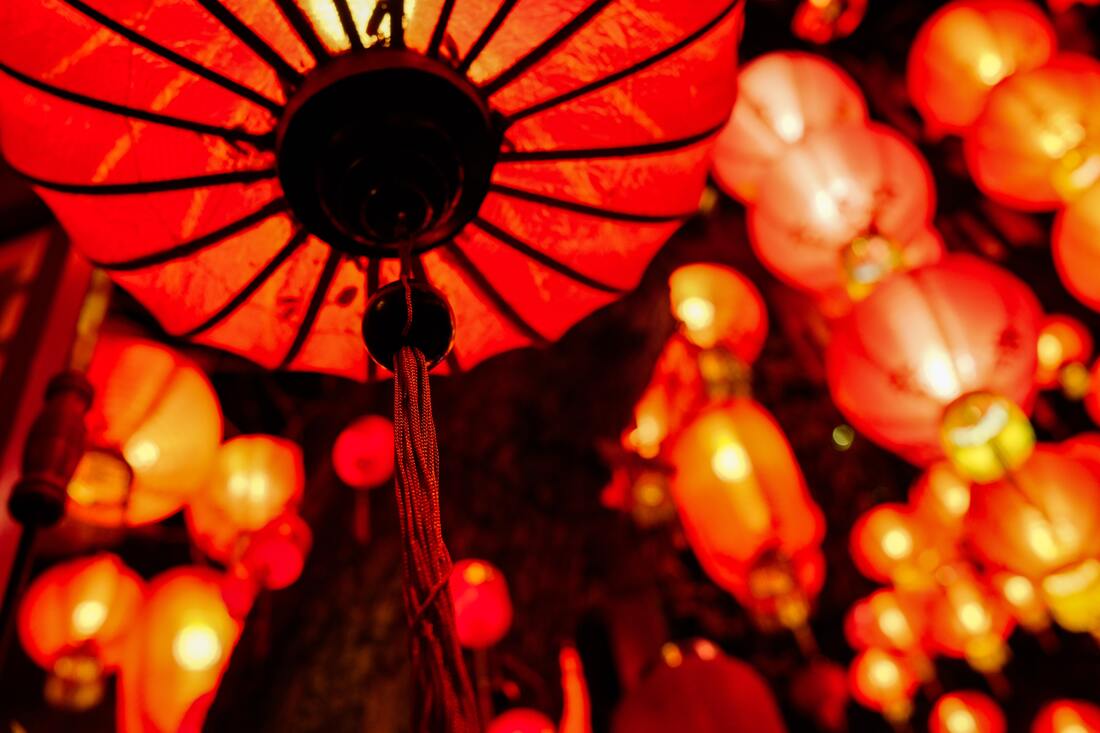|
Since Autumn began, there has been a steady diminishing of the sunlight in our lives. This yearly transition has been calling us to kindle the light within ourselves. We have talked about the Festival of Courage in September as a way to ignite a flame that brings courage into the coming darkness. We then discussed celebrating the Festival of Compassion or the Lantern Festival in November as a way to honour the light we have been carrying within us and how that expands and burns brighter in our communities. Many religions around the world acknowledge this season as the time for the Festival of Light. Each day since Fall began has been a step closer to the darkest day of the year. The beautiful thing about the Winter Solstice is that the darkest night also marks the beginning of the light's slow return. In ancient days, darkness would have brought fear and uncertainty, so marking this time with firelight brought hope and warmth to all. In our modern time, although we have knowledge and certainty that the light will return, it can still be challenging psychologically to manage this darkness with patience. Festival and ritual are a way of marking these important moments in the darkness and creating stepping stones that we can follow back to the light. Daily Wonder encourages families to explore and learn about the variety of Festivals of Lights around the world. The best way to learn about a new festival is to connect with friends, neighbours and community members who celebrate a different holiday than yourself. If that's not an option for you, check out these links below to learn how to experience various festivals. Connecting with food, music, and ritual is the best way to do this. Here are a few Festivals of Light that happen around this time of year. Diwali - IndiaFollows the Lunar Calendar and is celebrated at the end of October / early November Diwali is India’s most important festival of the year—a time to celebrate the triumph of light over darkness, knowledge over ignorance, good over evil and the eradication of dark shadows, negativity, and doubts from our lives. It is a celebration of prosperity in which people give gifts to their loved ones. The festival also sends the message of illuminating our inner selves with clarity and positivity. During this festival, people clean their homes, decorate every corner with lights, lamps, flowers, and candles. You can learn more about this festival and ways to celebrate here. HanukkahFollows the Lunar Calendar and is celebrated in November / December A festival celebrated by Jews worldwide, it is observed for a period of eight nights and days anywhere between the end of November and December. Hanukkah is also known as the Festival of Lights or the Feast of Dedication. This holiday celebrates the rededication of the Holy Temple in Jerusalem following the Maccabean revolt against the Syrian-Greek army. Each night, a candle is lit on the Menorah, which has nine candlesticks — one for each night of Hanukkah and an extra one to light the others. Other traditions include playing Dreidel, eating fried latkes, giving gifts and playing/singing Hanukkah music. You can learn more about this festival and ways to celebrate here. KwanzaaDecember 26 - January 1 Kwanzaa was started in 1966 by Dr. Karenga to bring African Americans together as a community. Celebrations often include songs and dances, African drums, storytelling, poetry reading, and a traditional meal. Kwanzaa takes place over seven nights. On each of the seven nights, one of the candles on the Kinara (candleholder) is lit, and one of the seven principles is discussed. The principles, called the Nguzo Saba (seven principles in Swahili), are values of African culture which contribute to building and reinforcing community among African-Americans. You can read more about this festival including the seven principles here. Chinese Lantern FestivalCelebrated on the 15th day of the first Chinese lunar month, the Lantern Festival traditionally marks the end of the Chinese New Year. The Chinese Lantern Festival began over 2,000 years ago. The Lantern Festival is the first full moon night in the Chinese calendar, marking the return of spring and symbolizing the reunion of family. Traditional celebrations include enjoying lanterns, lantern riddles, eating tangyuan, a.k.a. yuan xiao (ball dumplings in soup), lion dances, dragon dances, etc. You can learn more about this festival and ways to celebrate here. When learning about a new cultural or religious festival, genuine interest and wonder allow us to explore cultures other than our own with appreciation, reverence and honour. Through this open-hearted learning journey, we teach our children about the incredible diversity and similarities of our human experience.
0 Comments
Leave a Reply. |
BlogExplore schedules, rhythms & routines, songs, music, festivals, free play, meals, projects & more to support your homeschooling program.Categories
All
Archives
July 2024
|
You might be wondering... |
Visit us on Teachers Pay Teachers© COPYRIGHT 2020. ALL RIGHTS RESERVED
Serving your worldwide educational needs from Comox Valley, BC, Canada. |




 RSS Feed
RSS Feed